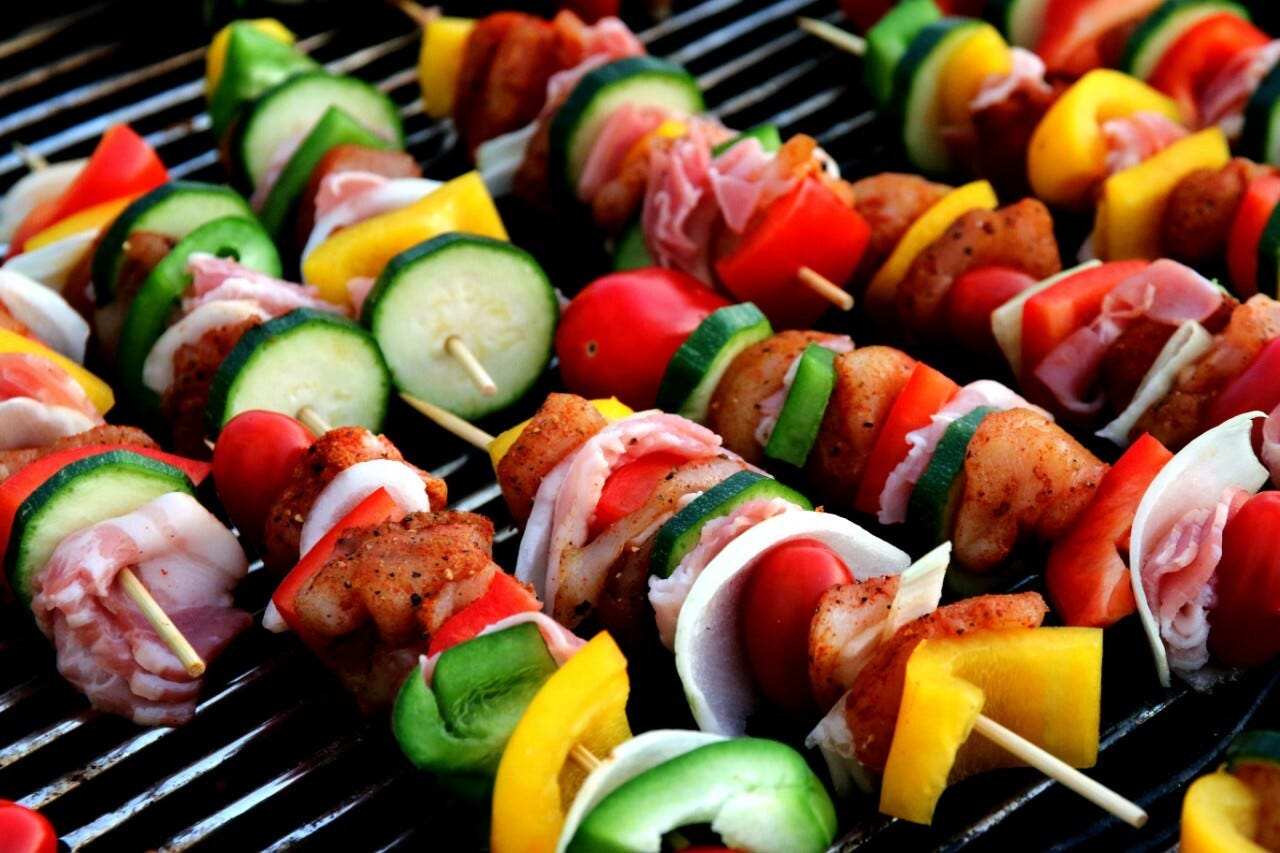
Summer brings more time and warm weather to be active and have fun outdoors. With plenty of delicious summer fresh foods to eat, this is the perfect time to establish your healthy summer regime to carry through the new year.
Ways to stay hydrated over summer
As the temperature heats up your body sweats to keep cool[1]. In warm weather we therefore become thirsty. This tells our body to drink up to replace lost fluid to prevent dehydration. What a great reason to sit back and sip a cool drink by the pool, with a mocktail or chilled water of course, if we are looking to keep hydrated. It is so easy to grab a sugary or alcoholic one, but this isn’t the healthiest way to help replace the fluid in your body.
- How about chilled water, with fresh berries, cucumber, mint or lemon if you prefer a little flavour. A water jug in the fridge and even the glasses, takes care of having a cold drink ready. Quenching your thirst with water first, allows you to sip on the alcoholic drink, making it last a little longer.
- Have you tried boosting your salads with grains? Wild rice, quinoa, cracked wheat, legumes such as chickpeas, brown lentils, or even the old fashioned potato salad (leave the skin on for extra fibre) make tasty salads when dressed with good quality extra virgin olive oil. Enjoy including quality carbs in a quantity that suits you this year without any fear!
Eat seasonal fresh produce
Summer time brings loads of fresh fruit and summer vegetables. Fruit platters, fruit salad and summer salads greens and tomatoes. Buying in season means the fruit is bursting with flavour making it more enticing to enjoy and eat more of. Aim for 2 fruit serves a day[2]. Swap some packaged snack foods for these summer delights! Frozen grapes taste like sherbet, fresh punnets of berries and cherries are a sweet summer treat.
Throw some veggies on the barbie
93% of Australians don’t eat the recommended 5 servings on veggies per day the 2014 Australian Dietary Survey showed us[3]. Be one of the 7% who do this year, with a serve being 1 cup of salad or ½ cup cooked vegetables. Any easy way to do this, throw some veg on the barbie….along with your shrimp, fish, lentil burger or lean meat too! You can increase your vegetable intake with tomatoes, mushrooms, corn on the cob, capsicum, potatoes all cooked on the barbeque together. These not only provide colour to the meal, making it more appealing but plenty of valuable nutrients and dietary fibre too.
Quality carbohydrates
No need to fear, carbohydrates are allowed to be here in the new year. It is about including carbohydrates in your day that are mostly wholegrain; which are high in fibre and contain more vitamins and minerals and eating a quantity that suits your needs. For active people around 1/3rd of your plate to be from carbohydrate and for the less active one quarter or around a fist full per meal is a rough guide.
The power of protein
Being more regularly active is a new year goal for many of us. Being outdoors and active seems easier over summer. Getting into a good routine that we can continue all year through helps develop, maintain and maximise muscle mass, essential as each year rolls by because as we age muscle mass starts to decline[4]. Along with being active we need to eat enough protein, spread out over the day to help slow this decline. Protein is also important for hormone production, your immune system and general repair. Try and include a protein source at each meal, it will generally provide a sense of fullness to a meal or snack also. Think a tub of yoghurt, hard boiled egg or a handful of nuts to provide protein to a fruit snack, that would otherwise be high carbohydrate.
Vary your protein sources. It is good to include a range of protein containing foods and from both plants and animals. A palm size serving or so of meat is enough for most of us at one meal, around a quarter of the plate, leaving plenty of room for the vegetables and some wholegrain carbs. A few serves of fish per week and some vegetarian based meals will provide a good balance. Plant sources of protein can include legumes (e.g. kidney beans, edamame, green peas), lentils, tofu, nuts and seeds. Dairy and eggs are also a good source of protein.
What better time than now, to shape up your summer diet, establish a new routine and enjoy the new year that lies ahead with an abundance of energy!
References:
- https://www.livescience.com/59254-facts-about-sweating.html
- https://www.eatforhealth.gov.au/food-essentials/five-food-groups/fruit
- AIHW Australian Institute of Health and Welfare (2018) Australia's health 2018, AIHW, Australian Government, accessed 16 April 2023. doi:10.25816/5ec1e56f25480
- Siparsky PN, Kirkendall DT, Garrett WE Jr. Muscle changes in aging: understanding sarcopenia. Sports Health. 2014;6(1):36-40. doi:10.1177/1941738113502296
